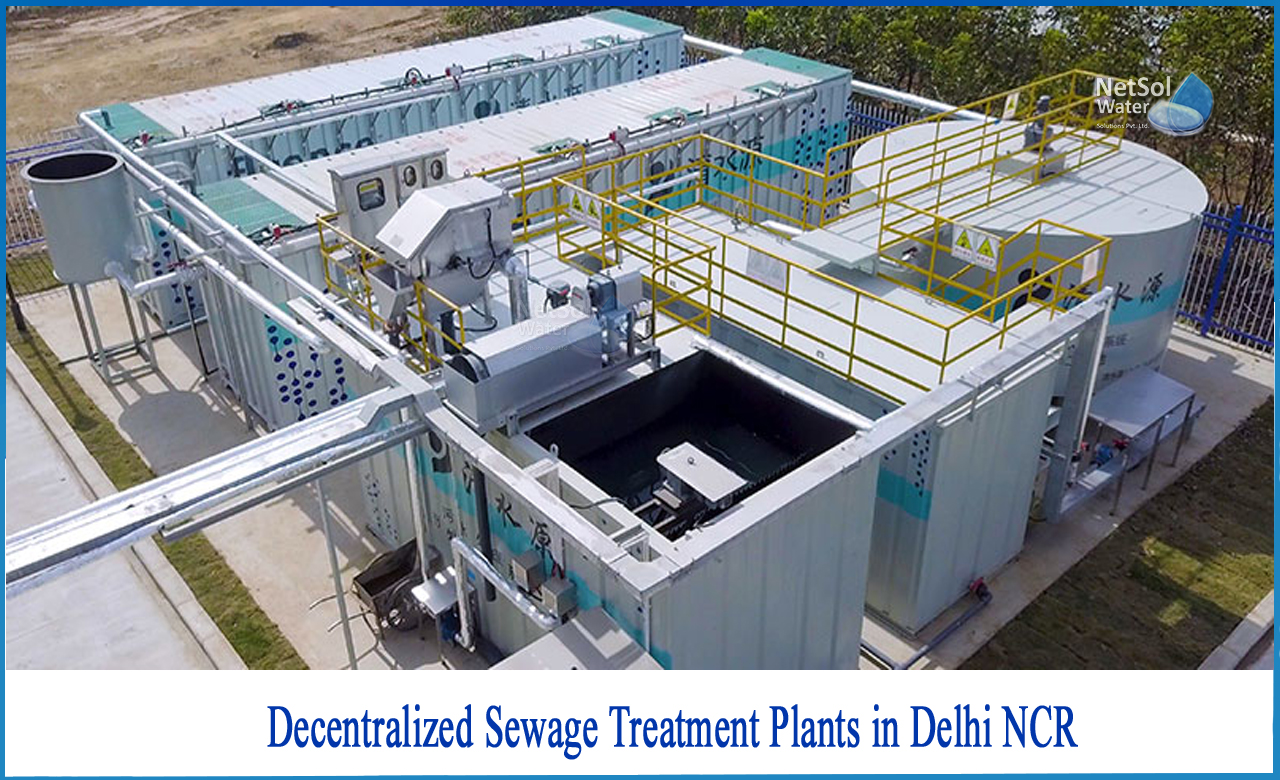How many Decentralized STP in Delhi NCR?
The area under the jurisdiction of the New Delhi Municipal Council, is densely forested and home to many magnificent gardens. The Delhi Jal Board estimates that the total amount of water handled at its sewage treatment plants is around 455 million gallons per day (mgd), of which 142 mgd is used for horticulture and irrigation in the Delhi metro area.
As long as the treatment plants can be operated and maintained according to the treatment criteria put out in the contracts, this is a cost-effective approach to wean the city off its reliance on groundwater.
Following are descriptions of eight plants, six of which are operational and two of which are under development-
SBT Nehru Park: Based on the Soil Biotechnology (SBT) approach, this is a 500 kld plant. Professor Shankar and his colleagues at IIT-Bombay created this technology, and the design was provided by Vision Earth Care in Mumbai (web: http://www.visionearthcare.com/). The NDMC receives 500 kiloliters of treated water per day from this plant, which it uses entirely for the huge Nehru Park.
Lodhi Garden: This SBT plant can process 500 kiloliters of water each day. On September 14, 2017, it was officially opened. It will be linked to the garden's subterranean water grid, eliminating the need for groundwater pumping. The water will also be taken by NDMC tankers and distributed to surrounding gardens.
Gol Market/CPWD Housing Complex:This facility is the only one of the six that is close to a housing complex. Because the sewage is sprinkled across the gravel rather than swished around in a vast open air tank, the smell is much reduced compared to a traditional sewage plant. Occasionally, the wind sends a foul odor towards the complex. Various mosquito-breeding-control strategies have been implemented, and they are regularly monitored.
Garden of Roses: This SBT plant can be found in one of the magnificent BRICS Rose Gardens near Shantipath, which is home to embassies and high commissions. It treats 100 kiloliters of wastewater per day, which comes from a nearby sewer line. This treated water nourishes the two rose gardens on either side of Shantipath and waters the shrubs and flowers that runs down Shantipath near the Japanese High Commission after being treated with soil biotechnology.
Motibagh garden: The MBR, or membrane bioreactor, method is used in the Motibagh plant. The green tanks are pumped with raw wastewater and filled to the brim. The wastewater is then aerated by being churned and bubbled in these tanks. The sludge and bacteria in the water are eaten by the local bacteria. The water next flows through a membrane, which filters it even further. Tankers line up on the side street to receive the treated water.
Satya Sadan: The second MBR facility is located in Satya Sadan, near the Safdarjung airport, on the outskirts of a fairly tranquil area. The factory processes 500 kiloliters of wastewater each day by pumping it into open 5-foot-high tanks. The wastewater is aerated before being filtered through a membrane. So far, the cleaned water has been used in local parks, but if people are aware of the source, other uses are possible.
Singapore Park: It is currently being built and will have a 300 kld capacity. The entire building cost is expected to be in the range of Rs 60-70 lakhs. The purified water will be used to water the area's gardens and may even be used for toilet flushing by the Singapore High Commission. Nearby, there are two slums with a combined population of 10,000 people. Residents receive 9 tankers of potable water each day from the NDMC and use hand pumps to draw groundwater for cleaning and washing.
Sanjay Lake Park: This MBR-based STP is currently under construction and should be completed soon. It will treat 300 kiloliters per day of raw wastewater from a nala manhole within Sanjay Lake Park for horticulture in the region.
PPPs (public-private partnerships)
NDMC is now the only client for the treated water supplied by these units. According to the PPP agreement between the enterprises and the NDMC, the company is responsible for all installation, operation, and maintenance expenditures for a period of 12 years. The NDMC covers the cost of the system by promising to buy water from the corporation. Depending on the size of the facility, they promise full purchase of water at roughly Rs 30-37 per kiloliter.
The futureholdings
The long run aside from the existing horticulture purposes, there is potential for this water to be put to other uses. About half of all water consumption in moderate and upper-income homes goes to regions other than those that meet vital bodily demands. Bathing, drinking, cooking, and dishwashing account for 40% of the water budget, while toilet flushing, household cleaning, industrial processes, and gardening account for little more than 50%.
Treated wastewater can gradually meet these non-essential needs, which account for up to half of the water budget in urban areas. This will conserve groundwater and river water for vital use while also providing backup water in the event of a disaster or emergency.
Netsol Water is Greater Noida-based leading water & wastewater treatment plant manufacturer. We are industry's most demanding company based on client review and work quality. We are known as best commercial RO plant manufacturers, industrial RO plant manufacturer, sewage treatment plant manufacturer, Water Softener Plant Manufacturers and effluent treatment plant manufacturers. Apart from this 24x7 customer support is our USP. Call on +91-9650608473, or write us at enquiry@netsolwater.com for any support, inquiry or product-purchase related query.



